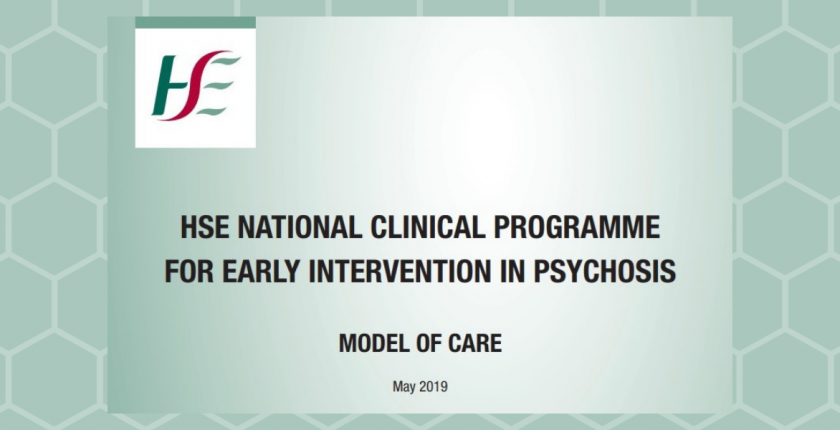Blog
HSE Launches Model of Care for Early Intervention in Psychosis
- June 13, 2019
- Category: Blog Of interest from media Public Information Stakeholders Uncategorized

An estimated 1,500 people a year in Ireland develop a psychotic disorder for the first time with young people particularly affected. About two thirds of presentations occur before the age of 35.
Following extensive collaboration with the HSE National Clinical Programme for Mental Health the College of Psychiatrists of Ireland are delighted to see the HSE National Clinical Programme for Early Intervention in Psychosis (EIP) officially launched by Minister of State, Mr Jim Daly, TD.
Accounting for the second highest cause of disability worldwide, Psychotic disorders are a major source of suffering and disability in society. About 3 per cent of the population are affected in their lifetime with psychotic disorders such as mood disorders (with psychosis) and schizophrenia. Schizophrenia is ranked sixth in the global burden of disease.
Early intervention is key to those with psychosis leading quality lives. Most people experience long delays in accessing treatment from the time they first experience psychosis which results in great levels of suffering, suicidality and co-morbidity amongst other serious detrimental effects of the disorder. The Early Intervention in Psychosis (EIP) clinical programme aims to reduce this delay, provide earlier support and treatment and hence improve short and long term clinical, functional and personal outcomes for those suffering with the disorder.
The programme ‘identifies the components of EIP, the key principles, gives recommendations for the staffing, training and resources required as well as the requirements for continuous quality improvement. It recommends a service model for EIP which reflects the sociodemographic factors that apply in Ireland and outlines the steps for setting up a service. Finally, it outlines the resources that will be required and the savings that might be expected.’
Welcoming the EIP programme at the launch, College Vice-President, Dr William Flannery thanked the service user who for gave her time and her personal experience for the programme,
There are real people behind this, seeking hope that there is a real pathway to recovery.
Continuing he said,
The College consistently advocates for mental health services of the highest standard. As with other clinical programmes to date we do this by providing quality assurance through a Clinical Advisory Group (CAG), calling on specialists and experts in the area, experience of colleagues across all services and the College REFOCUS group (Recovery Experience Forum of Carers and Users of Services).
He finished by thanking all above with particular acknowledgement of and gratitude to Dr Paddy Power, Chair of the Clinical Advisory Group.
